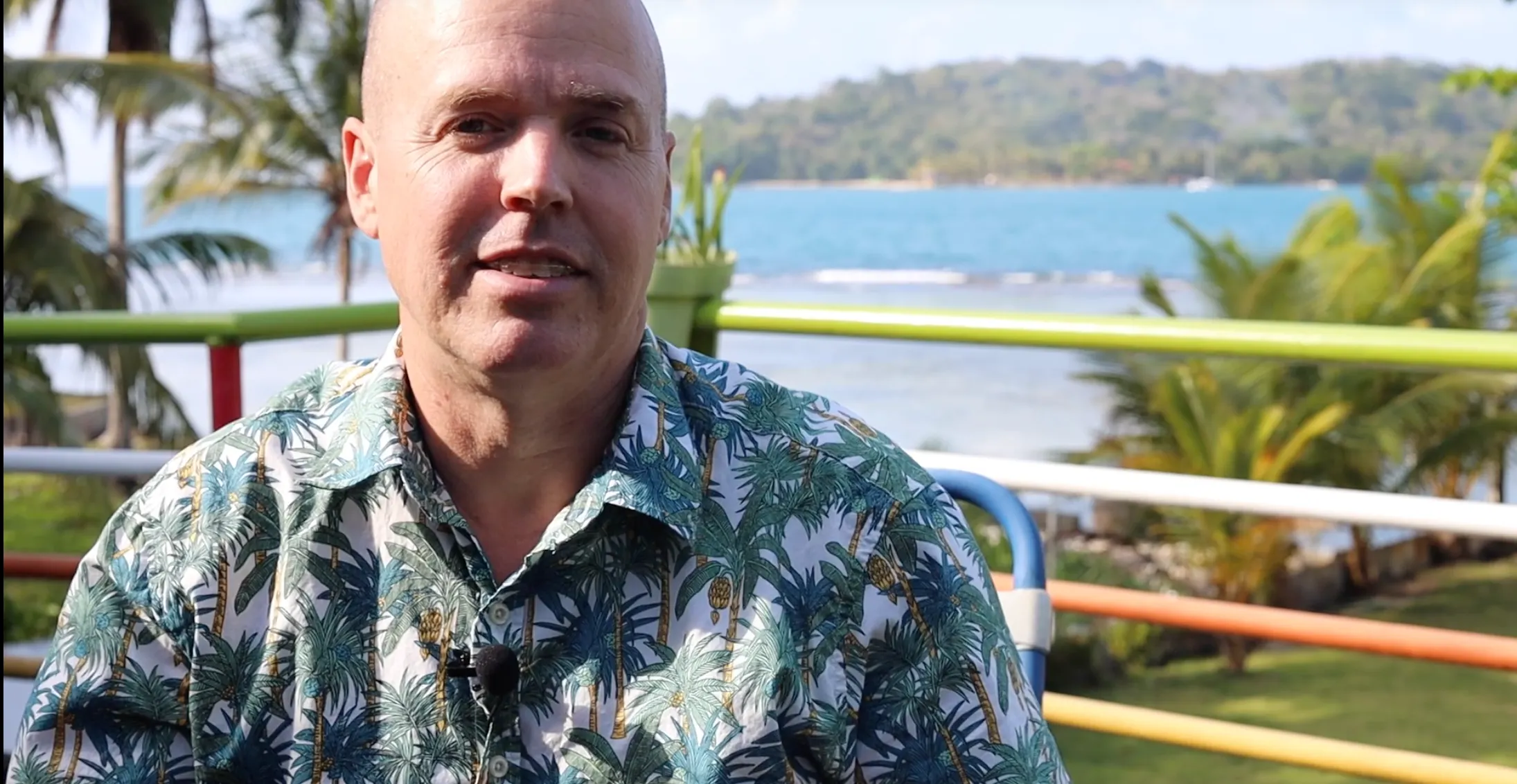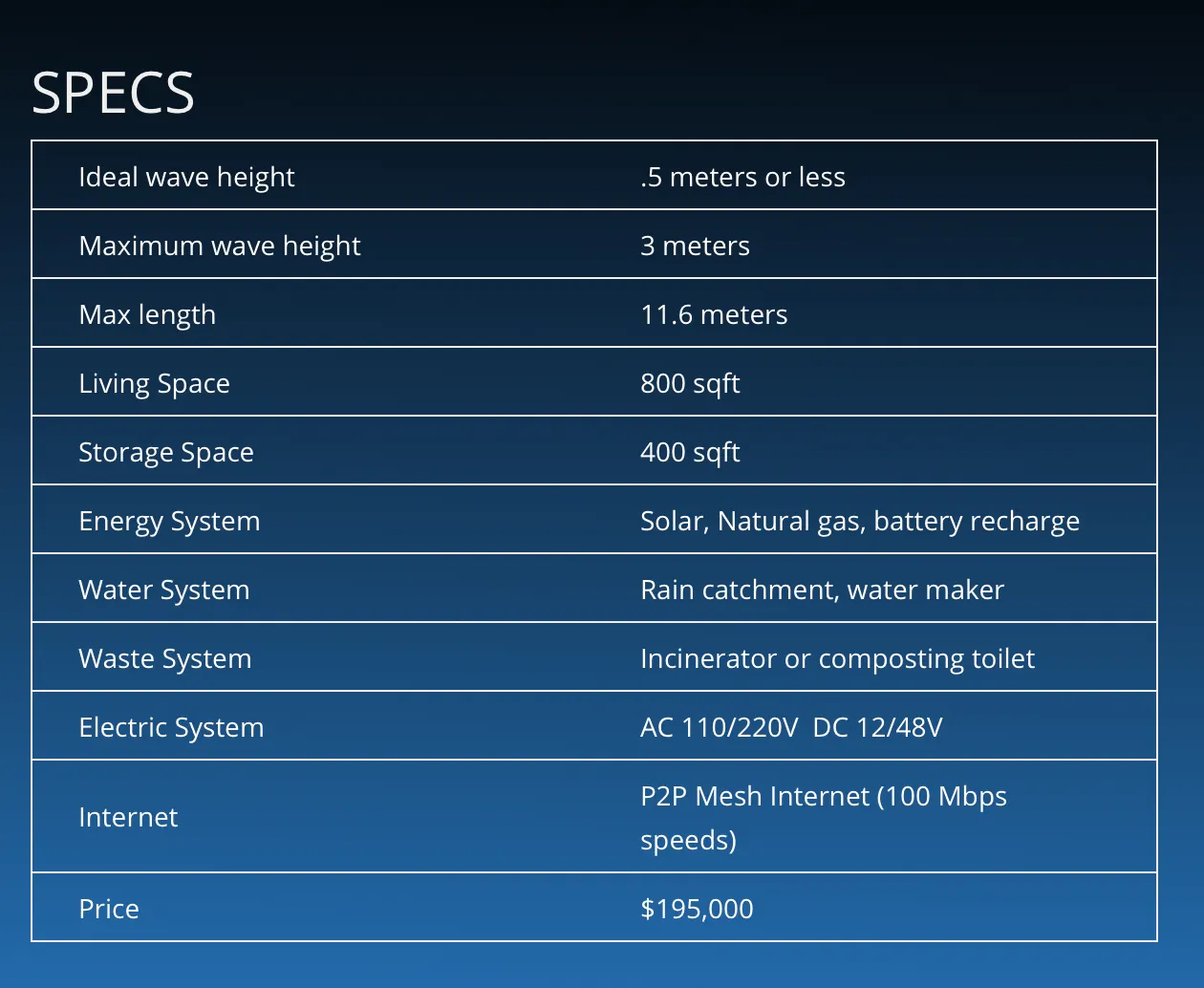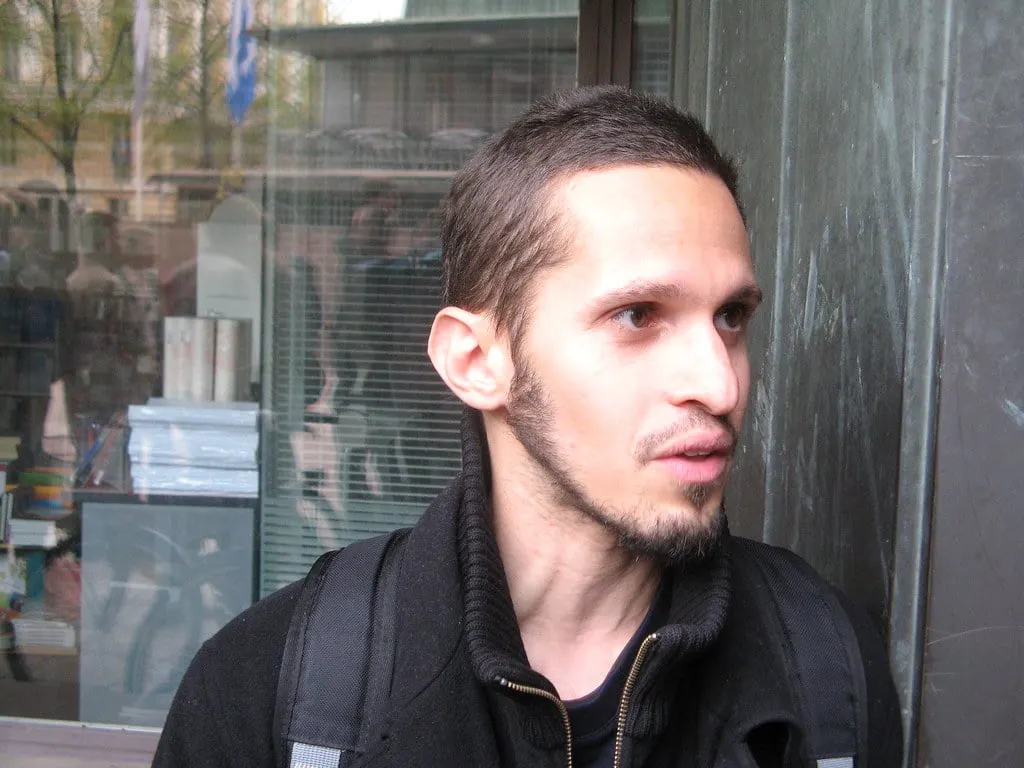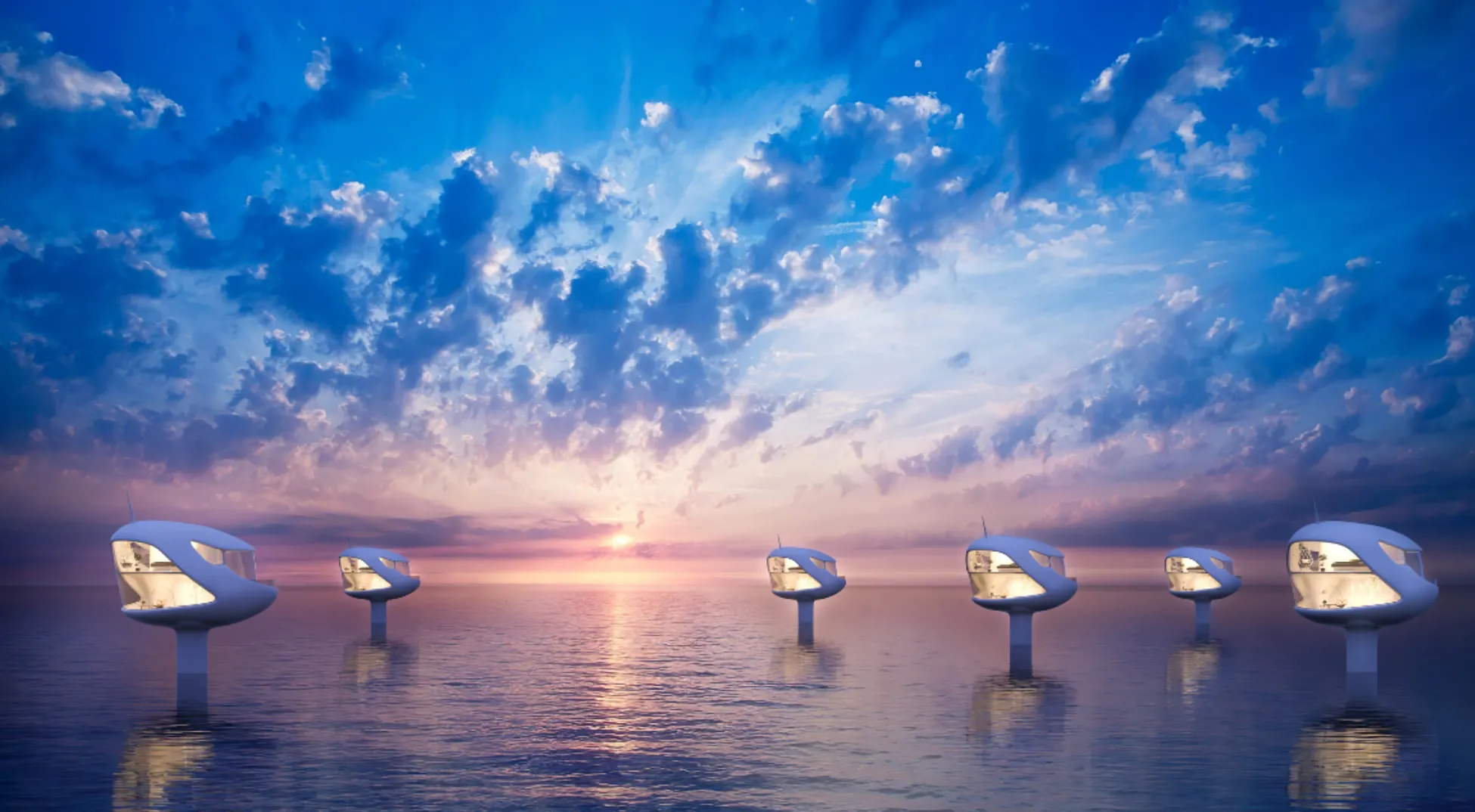In brief
- Libertarian Chad Elwartowski is building the world’s first 3D-printed, smart, floating homes.
- The sea pod-like structures will fly the Panama flag.
- Elwartowski's first efforts at "seasteading" failed when the Thai authorities destroyed his floating cabin.
Chad Elwartowski, an American software engineer turned Bitcoin trader, is one of the leading lights of the "seasteading" movement—a libertarian drive to build independent floating cities on the high seas. Right now, he's constructing a prototype for “the world’s first 3D-printed, smart, floating home,” off the Caribbean coast of Panama. A prior effort, in Thailand, was towed off by the Thai navy in 2019.

Interest in seasteading is enjoying a renaissance among libertarian, tech millionaires, keen to escape the threat of increasing government surveillance. The movement has come a long way since entrepreneurs Peter Thiel and Patri Friedman (grandson of eminent economist Milton) launched the Seasteading Institute in 2008.
“Coronavirus is an opportunity to show the world that what we’re building is actually going to be very useful in the future,” said Elwartowski, in a recent video update on his project.

But Elwartowski’s vision has changed since his first attempt at seasteading in Thailand, when he and his Thai partner Supranee Thepdet were forced to flee, dodging Thai patrol boats. He was tipped off that the authorities had determined that the fiberglass cabin, on top of a floating pole, posed a threat to the country's sovereignty—punishable by death.
Now, they’ve settled in Panama and joined a local business called Ocean Builders, which is creating 30 "seapods," and selling them on the open market for between $200,000 to $800,000 each. The pods will be registered as boats under the Panama flag for legal purposes.

It’s somewhat ironic that staunch libertarians are now asking for government permission to complete their utopian dreams. But the fact is that attempts, over the years, to set up floating societies have floundered—even those sanctioned by national governments.
In 2017, the French Polynesian government approved the Seasteading Institute’s plans for an autonomous community near the French Polynesian coast, using a cryptocurrency called Varyon. However, the authorities rescinded its approval a year later, in response to objections of “tech colonialism” by the residents of Tahiti, the nearest well-populated island in the archipelago.

Friedman is now involved in the Marshall Islands’ scheme to introduce a sovereign digital currency. He said recently that, in the past month, he is seeing “a lot” of inquiries from peers who want to know where’s best to move.
He and Thiel have moved on to self-governed "charter cities" in developing countries, allowing international firms to set up shop in the semi-autonomous zones. The project takes the form of a venture fund, bolstered by $9 million in funding from Thiel, as well as investors and Bitcoin heavyweights Marc Andreessen, Roger Ver, and Balaji Srinivasan.
“Seasteaders have found out it is probably better to make an agreement with the government,” said Titus Gebel, CEO of Tipolis, another startup developing semi-autonomous cities run by private companies.
It may not be the original libertarian dream but it'll do for now.

